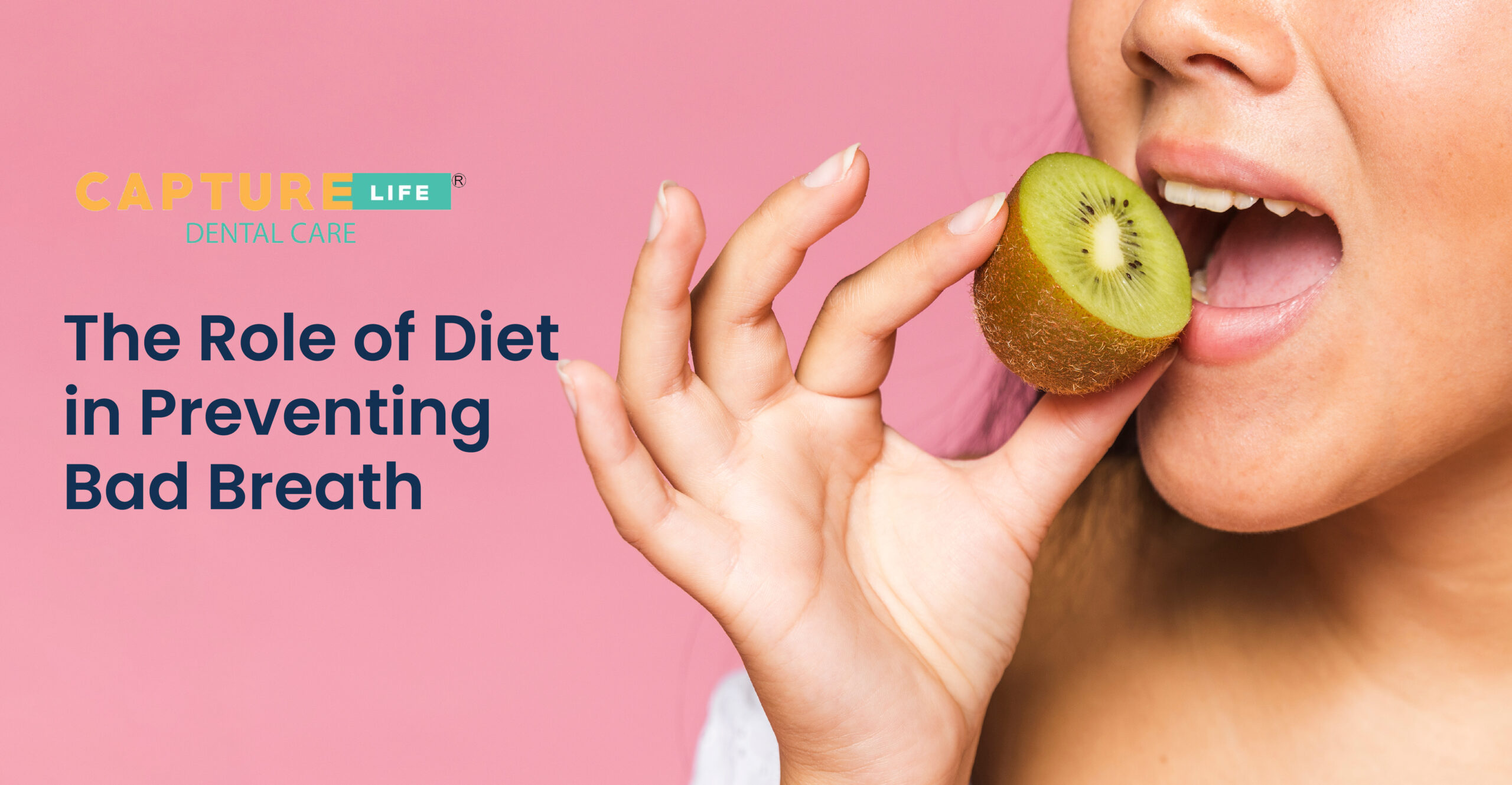
22 Oct Say Goodbye to Bad Breath with These Diet Tips
Bad breath, or halitosis, can be an embarrassing issue that affects many people.
While good oral hygiene is essential in preventing it, your diet also plays a crucial role in maintaining fresh breath.
Certain foods can either contribute to or help reduce bad breath, making it important to understand the impact of what you eat.
In this blog, we’ll explore how dietary choices influence your breath and offer tips to help you stay fresh naturally.
At Capture Life Dental Care, we focus on both oral and overall wellness.
How Food Affects Breath
Bad breath typically starts in the mouth, where bacteria break down food particles, releasing unpleasant odors.
Some foods, especially those high in sulfur compounds, like garlic and onions, contribute to bad breath even after brushing.
Meanwhile, sugary and starchy foods fuel bacteria in the mouth, which produce foul-smelling byproducts.
Foods to Avoid for Fresh Breath
Certain foods are known for causing bad breath, either by leaving strong odors or by promoting bacterial growth.
To reduce bad breath, consider limiting the following:
- Garlic and Onions: Rich in sulfur compounds, these foods release odors into the bloodstream and are expelled through the lungs long after digestion.
- Sugary Snacks: Candy, sodas, and other sugary treats feed bacteria, increasing acid production and bad breath.
- Dairy Products: Proteins in dairy break down into volatile sulfur compounds, contributing to bad breath.
- Coffee and Alcohol: These beverages dry out the mouth, reducing saliva production and allowing bacteria to thrive.
Foods That Help Combat Bad Breath
On the flip side, certain foods can naturally freshen your breath:
- Crunchy Fruits and Vegetables: Apples, carrots, and celery work like natural toothbrushes, scrubbing away plaque and food particles while stimulating saliva production.
- Herbs and Leafy Greens: Parsley, mint, and basil neutralize sulfur compounds, freshening breath when chewed after meals.
- Yogurt: Probiotics in plain yogurt reduce hydrogen sulfide, a major cause of bad breath, by balancing bacteria in the mouth.
- Water: Staying hydrated helps wash away food particles and bacteria, keeping your mouth moist and reducing bad breath.
- Green Tea: Rich in catechins, green tea has antibacterial properties that can reduce odor-causing bacteria.
Hydration: A Key Factor
Keeping your mouth moist is essential for preventing bad breath. Saliva neutralizes acids, washes away food particles, and controls bacteria.
Drinking water throughout the day helps keep your mouth hydrated and fresh.
Pairing Diet with Good Oral Hygiene
While your diet plays a role, it’s important to pair healthy eating with solid oral hygiene.
Brushing twice daily, flossing, and using mouthwash all help reduce bacteria and food particles responsible for bad breath.
Regular check-ups at Capture Life Dental Care can also address underlying issues like gum disease or tooth decay that may cause bad breath.
Conclusion
Your diet has a significant impact on your breath.
By avoiding odor-causing foods and incorporating breath-friendly options like crunchy fruits, herbs, and probiotics, you can naturally maintain fresh breath.
At Capture Life Dental Care, we believe a healthy diet complements good oral hygiene.
If bad breath persists, our dental experts are here to provide personalized advice and treatments to keep your breath fresh and your mouth healthy.

